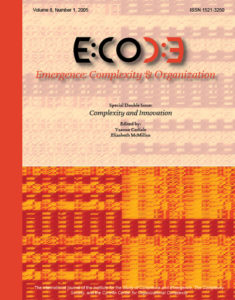I was very close to the finish line of my dissertation when I suddenly started seeing a source pop up in virtually everything I read. It’s not like he was someone new on the scene; on the contrary, Jerome Bruner’s work is seminal in the storytelling world. As pointed out by a member of the Working Stories group, Bruner, in his Acts of Meaning suggests that stories are hard-wired into humans – that they are the primary symbolic activities that human beings employ in sense- and meaning-making. “There are certain classes of meaning to which human beings are innately tuned and for which they actively search.” Narrative, he says, organizes experience and “specializes in the forging of links between the exceptional and the ordinary.”
Odd that I didn’t come across his work till so close to the end of my research. So close in fact that I ended up not citing Bruner. I have nightmares that someone reviewing my dissertation will gasp, “I can’t believe you didn’t cite Bruner!”
This concept of people being hard-wired to think in narrative is important for my work, though, because it suggests that hiring managers are more receptive to job-search communications in narrative form.
Another member of the Working Stories group suggested a number of additional works that address narrative as a way of thinking. See those in the continuation of this entry.
Narrative as Argument in Indian Philosophy: The Astavakra Gita as Multivalent Narrative, by Scott R. Stroud. Philosophy and Rhetoric, 2004, 37(1), 42-71.
Understanding Organizations through Language by, Susanne Tietze, Laurie Cohen and Gill Musson. London: SAGE Publications, 2003. (Reviewed in Organization Studies 26(2): 311-317, 2005.)
The Resilience of Language, by Susan Goldin-Meadow. Psychology Press, 2003.
The Language Instinct: How the Mind Creates Language, by Steven Pinker. HarperCollins, 2000.
The Symbolic Species: The Co-evolution of Language and the Brain, by Terrence Deacon. New York: W. W. Norton & Company, 1997.
The Narrative Construction of Reality, by Jerome Bruner. Critical Inquiry, 1991, 18(1), 1-21.
Acts of Meaning, by Jerome Bruner. Cambridge, Mass: Harvard Univ. Press, 1990.
Pinker, S. & Bloom, P. (1990). Natural language and natural selection. Behavioral and Brain Sciences 13(4): 707-784.
Human Communication as Narration: Toward a Philosophy of Reason, Value, and Action, by Walter Fisher. Columbia, SC: University of South Carolina, 1987.
Narrative Knowing and the Human Sciences, by Donald E. Polkinghorne. SUNY Press, 1988.
Culture tales: A narrative approach to thinking, cross-cultural psychology, and psychotherapy. by Howard, George S. American Psychologist. 1991 Mar 46(3) 187-197.
Thinking in Story: Preaching in a Post-Literate Age, by Richard Jensen.
The Alphabet Versus the Goddess: The Conflict Between Word and Image

